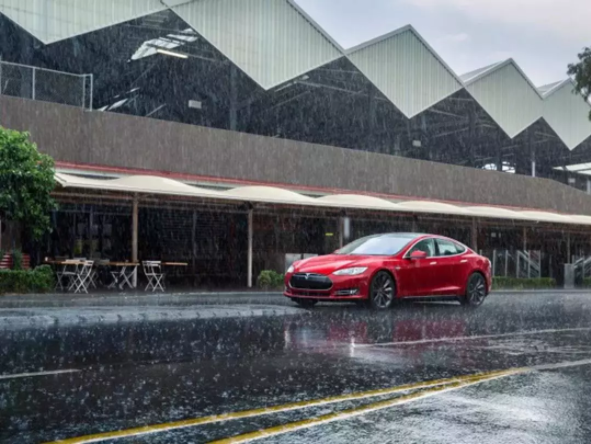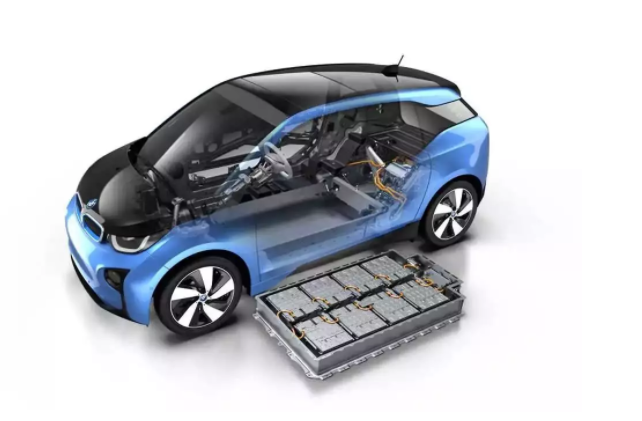As everyone knows, when a mobile phone falls into the water, it basically means that the TA is going to "end to sleep", and if the electric car with the battery is accidentally flooded, will it fall into the same way as the mobile phone, and even worse? Is it a short circuit or leakage? Can electric vehicles be 100% waterproof? Don't worry, tell you.

First, let's take a look at the battery's waterproof ability. China's electric vehicles (here specifically referred to as pure electric passenger cars, pure electric commercial vehicles, such as electric buses, etc.) are not equipped with the waterproof and dustproof capacity of the power battery to IP67 (note! When you buy electric cars must see), you can Ensure that the electric car will not enter the water or be damaged by the water in a certain period of time. The battery is waterproof and dustproof to IP67-rated electric vehicles. It has high waterproof performance and there is almost no possibility of water entering the working compartment of the motor. So the answer is obvious that you will not get an electric shock.

However, when electric vehicles are wading, they must also pay attention to some wading skills. Simply speaking, it is a look, a second look, and a third pass.
A look: Before passing through the wading road conditions, we can first check the passing situation of the preceding car or pedestrian before wading, so as to judge whether it can be safely passed.

(Like this situation, everyone still stops and "see the sea")
Second exploration: When there is no preceding vehicle or pedestrian as a reference object, we should use other reference materials such as roadbed as a reference. If necessary, we need to get off the vehicle to see the water depth with umbrella branches.
Third pass: In the case of ensuring safety, you can slowly pass through the wading road, and always pay attention to the water depth and water potential, generally beyond half the height of the tire, it is no longer suitable for passage.
NO.2 In the same level, why are some electric vehicles more expensive than fuel vehicles?
Many friends have expressed their doubts to Xiaobian on this issue. Today, let's discuss it with everyone.
The chassis part and body part of an electric car are similar to those of a fuel car, but the price of the battery part is much higher than that of a fuel engine. The "three big pieces" of electric vehicles, including batteries, motors, and electronic controls, can account for 80% of the entire vehicle cost, and the cost of batteries accounts for half of the cost of electric vehicles. At present, the electric vehicle adopts a ternary lithium ion battery, which has the advantages of higher specific energy and higher specific power, and is currently the battery with the highest specific energy. High performance means high cost and high price.
In addition to this, the cost of electric vehicles is not only the production cost, but also the cost of research and development. The cost of research and development of automobiles is huge, and electric vehicles are newly developed and costly. R&D costs are equally divided into the cars sold, but now electric vehicles are expected to have low sales and high R&D costs, and the R&D costs shared by each production car will be higher. Therefore, it is normal for electric vehicles of the same class to be sold at a higher price than fuel vehicles.

NO.3 What is the two-year follow-up mileage for electric vehicles?
After purchasing an electric car by myself, after driving for more than two years, there was a problem that the battery power dropped significantly. It was able to travel about 300 kilometers, and now it can only travel about 250 kilometers.
So what is the change in the two-year follow-up mileage of electric vehicles?
Just as the mobile phone has been used for a long time, the battery will get faster and faster, and the battery performance of the electric vehicle will also be degraded to a certain extent after a long time of use. BYD's staff has said that the battery capacity attenuation generally follows the mode of fast and slow first. Generally, the battery of the electric vehicle has a large attenuation in the first year, about 8%, and will decay in the next 2-3 years. 4%, 5-6 years will be reduced by 1% year by year, so the 2-3 years before the car is the most obvious period of electric vehicle battery capacity attenuation.
In addition, the environment in which electric vehicles are used is also important. If used as a taxi or running a drip, frequent use of fast charge can easily cause battery capacity to decay.
However, once you find that the battery of the electric car is attenuated, check whether it is in the warranty period and contact the manufacturer to measure whether the attenuation value is in the normal range. If it is outside the normal range (more than 80%) and the vehicle is still in the warranty period, you should negotiate with the dealer or the manufacturer to replace the battery for free.

















 RCCN WeChat QrCode
RCCN WeChat QrCode Mobile WebSite
Mobile WebSite